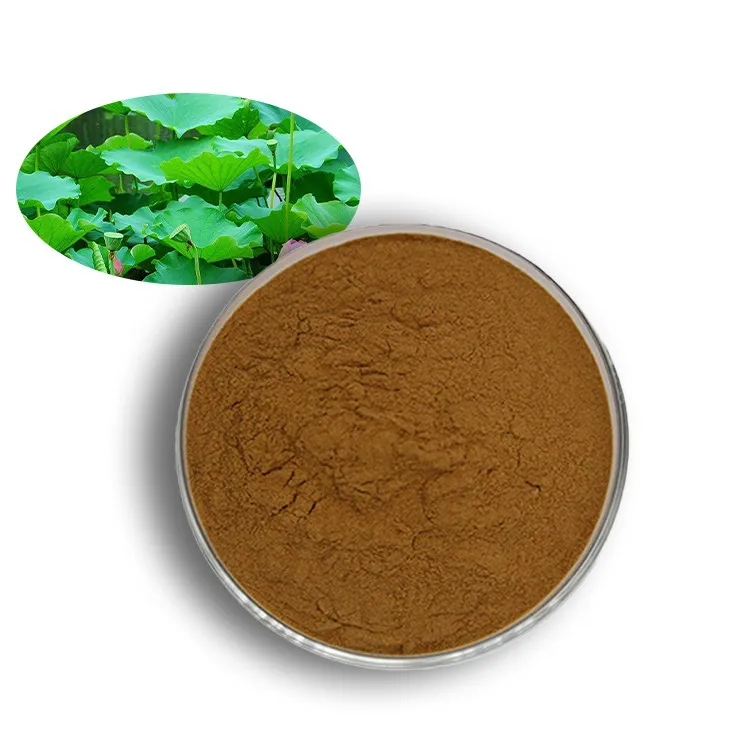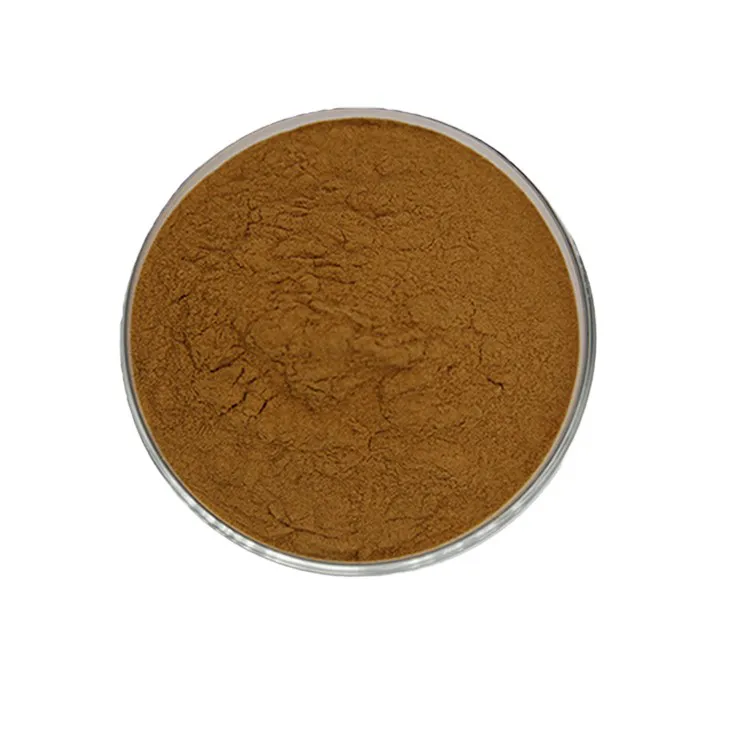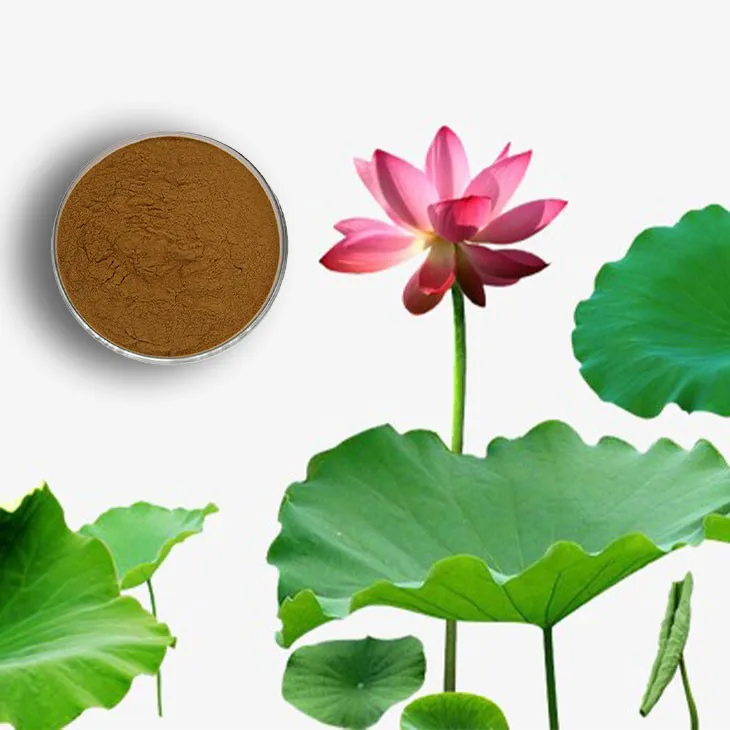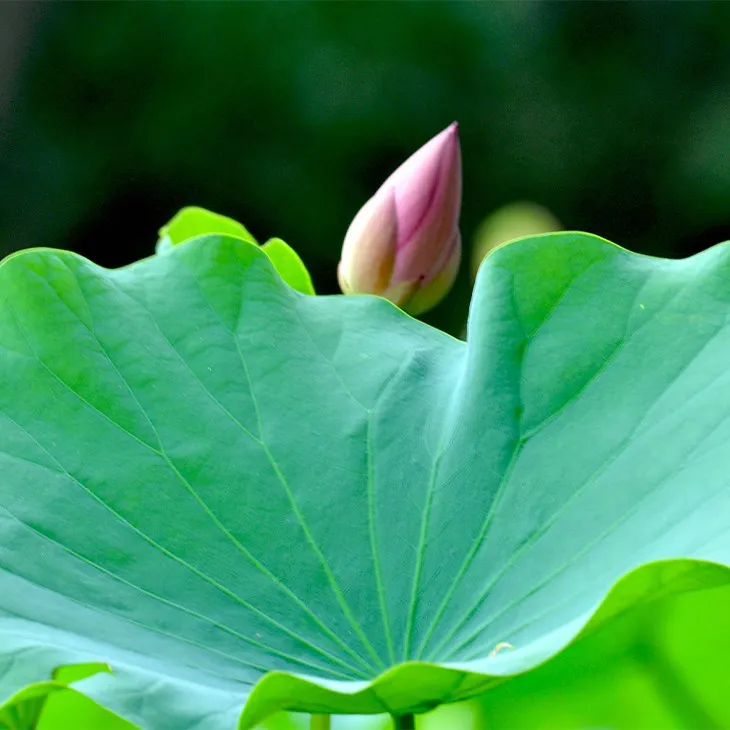- 0086-571-85302990
- sales@greenskybio.com
Lotus Leaf Extract: Vitality, Strengthening and Balance
2024-12-12

1. Introduction
The lotus plant has long been revered in various cultures around the world for its beauty, symbolism, and medicinal properties. Among its parts, the lotus leaf has emerged as a particularly interesting subject of study. Lotus leaf extract is rich in a diverse range of bioactive compounds, which endow it with a multitude of health - promoting effects. This extract has the potential to impact our well - being in ways that are both profound and far - reaching, from enhancing vitality to strengthening the body's systems and maintaining balance within the body.

2. The Bioactive Compounds in Lotus leaf extract
2.1 Alkaloids
Alkaloids are one of the significant groups of compounds found in Lotus leaf extract. These nitrogen - containing organic compounds often possess biological activity. In the case of lotus leaf alkaloids, they are thought to play a role in various physiological processes. For example, some alkaloids may have an impact on the body's neurotransmitter systems, potentially influencing mood and cognitive function.2.2 Flavonoids
Flavonoids are another important class of bioactive compounds present in lotus leaf extract. Flavonoids are well - known for their antioxidant properties. They can scavenge free radicals in the body, which are unstable molecules that can cause damage to cells and contribute to aging and various diseases. By neutralizing these free radicals, flavonoids in lotus leaf extract help protect the body's cells from oxidative stress.2.3 Tannins
Tannins in lotus leaf extract also contribute to its beneficial properties. Tannins have astringent qualities, which can be useful in certain health applications. For instance, they may help in reducing inflammation in the body. In addition, tannins can also interact with proteins and other molecules in the body, potentially affecting various physiological functions.
3. Vitality - Boosting Effects
3.1 Cellular Level Invigoration
At the cellular level, lotus leaf extract can have a rejuvenating effect. The bioactive compounds it contains can interact with the cells in various ways. For example, they can enhance the function of mitochondria, which are the powerhouses of the cells. By improving mitochondrial function, the cells are able to produce more energy, leading to an overall sense of increased vitality. This increased energy production at the cellular level can translate into greater physical and mental endurance.3.2 Metabolic Support
Lotus leaf extract also provides metabolic support. It can influence the body's metabolic processes, such as digestion, absorption, and utilization of nutrients. By optimizing these processes, the body is better able to extract energy from the food we eat. This, in turn, helps to keep the body functioning at an optimal level, contributing to a feeling of vitality. For instance, it may enhance the breakdown of carbohydrates, fats, and proteins, ensuring that the body has a constant supply of energy.
4. Strengthening the Body's Systems
4.1 Immune System Strengthening
The immune system is our body's defense mechanism against diseases and infections. Lotus leaf extract can play a role in strengthening this vital system. The bioactive compounds in the extract, such as flavonoids, have antioxidant and anti - inflammatory properties. These properties can help protect the immune cells from damage caused by free radicals and inflammation. Moreover, some components of the extract may also stimulate the production of immune cells, such as white blood cells, enhancing the body's ability to fight off infections.4.2 Circulatory System Support
The circulatory system is responsible for transporting oxygen, nutrients, and hormones throughout the body. Lotus leaf extract can support the circulatory system in several ways. For example, it may help to improve blood vessel function. Some of the compounds in the extract can relax the blood vessels, reducing blood pressure and improving blood flow. Additionally, it may also have an effect on blood lipid levels, helping to keep cholesterol and triglycerides in check, which is important for maintaining a healthy circulatory system.4.3 Digestive System Enhancement
A healthy digestive system is essential for overall well - being. Lotus leaf extract can contribute to digestive health. Tannins in the extract can have an astringent effect on the digestive tract, which may help in cases of diarrhea or excessive digestive secretions. Moreover, the extract may also stimulate the secretion of digestive enzymes, improving the digestion and absorption of nutrients from food. This can lead to better nutrient availability for the body, which is crucial for maintaining the health of all the body's systems.
5. Achieving Balance in the Body
5.1 pH Balance
Maintaining the proper pH balance in the body is important for various physiological functions. Lotus leaf extract may play a role in achieving this balance. Some of the compounds in the extract can act as buffers, helping to regulate the acidity or alkalinity of the body fluids. For example, in cases where the body is too acidic, the extract may help to neutralize the excess acid, bringing the pH back to a more normal range. This can have a positive impact on overall health, as many enzymatic reactions in the body are pH - dependent.5.2 Equilibrium between Physiological Functions
The body is a complex system with many different physiological functions that need to be in balance. Lotus leaf extract can help in achieving this equilibrium. For instance, it can help regulate the balance between the sympathetic and parasympathetic nervous systems. The sympathetic nervous system is responsible for the "fight - or - flight" response, while the parasympathetic nervous system is involved in the "rest - and - digest" response. By promoting a proper balance between these two systems, the extract can help the body respond appropriately to different situations, reducing stress and promoting overall well - being.6. Lotus Leaf Extract in Traditional and Modern Medicine
6.1 Traditional Medicine
In traditional medicine systems, such as Traditional Chinese Medicine (TCM), the lotus plant has been used for centuries. Lotus leaves were often used to treat various ailments, including digestive disorders, skin problems, and febrile diseases. The traditional use of lotus leaf extract was based on empirical knowledge passed down through generations. For example, in TCM, lotus leaf was sometimes used in herbal formulas to clear heat and dampness from the body.6.2 Modern Medicine
In modern medicine, research on lotus leaf extract is ongoing. Scientists are using modern techniques to study the bioactive compounds in the extract and their mechanisms of action. There is growing evidence to support the traditional uses of lotus leaf extract and also to uncover new potential applications. For example, studies are exploring the use of lotus leaf extract in the treatment of metabolic syndrome, which is a cluster of conditions including obesity, high blood pressure, and abnormal blood lipid levels.7. Safety and Precautions
While lotus leaf extract has many potential benefits, it is important to consider safety and precautions. In general, when used in moderation, lotus leaf extract is considered safe for most people. However, some individuals may be allergic to components of the extract. Additionally, if taking lotus leaf extract in supplement form, it is important to choose products from reliable sources to ensure quality and purity. Pregnant and breastfeeding women should also consult their healthcare providers before using lotus leaf extract, as there is limited research on its safety in these populations.
8. Conclusion
Lotus leaf extract is a fascinating natural product with a wide range of potential health benefits. Its ability to boost vitality, strengthen the body's systems, and promote balance within the body makes it a valuable subject of study in both traditional and modern medicine. As research continues, we can expect to learn more about the precise mechanisms of action of the bioactive compounds in lotus leaf extract and how to best utilize it for the improvement of human health. However, it is also crucial to approach its use with caution and under the guidance of healthcare professionals when necessary.
FAQ:
What are the bioactive compounds in lotus leaf extract?
The lotus leaf extract contains various bioactive compounds such as flavonoids, alkaloids, and polyphenols. These compounds contribute to its multiple beneficial effects on the body.
How does lotus leaf extract invigorate the body at a cellular level?
The bioactive compounds in the lotus leaf extract can interact with cells in different ways. For example, they may enhance cellular metabolism, protect cells from oxidative stress, and stimulate cellular repair mechanisms, thus invigorating the body at a cellular level.
Can lotus leaf extract specifically boost the immune system?
Yes, it can. The compounds in lotus leaf extract have immunomodulatory properties. They can enhance the function of immune cells like lymphocytes and macrophages, and also help regulate the production of cytokines, which are important for a proper immune response.
How does lotus leaf extract contribute to the balance of the body's pH levels?
The extract may contain components that can either buffer or adjust the body's acid - base balance. For example, some of its alkaline - forming substances can help neutralize excess acidity in the body, thus contributing to pH balance.
What makes lotus leaf extract of great interest in modern medicine?
In modern medicine, the scientific study of lotus leaf extract has revealed its potential in various aspects such as antioxidant, anti - inflammatory, and metabolic regulation. These properties make it a candidate for the development of new drugs or therapies, which is why it is of great interest.
Related literature
- Beneficial Effects of Lotus Leaf Extract on Metabolism"
- "Lotus Leaf Extract: A Potential Immunomodulator"
- "The Role of Lotus Leaf Extract in Maintaining Body Balance"
- ▶ Hesperidin
- ▶ citrus bioflavonoids
- ▶ plant extract
- ▶ lycopene
- ▶ Diosmin
- ▶ Grape seed extract
- ▶ Sea buckthorn Juice Powder
- ▶ Beetroot powder
- ▶ Hops Extract
- ▶ Artichoke Extract
- ▶ Reishi mushroom extract
- ▶ Astaxanthin
- ▶ Green Tea Extract
- ▶ Curcumin Extract
- ▶ Horse Chestnut Extract
- ▶ Other Problems
- ▶ Boswellia Serrata Extract
- ▶ Resveratrol Extract
- ▶ Marigold Extract
- ▶ Grape Leaf Extract
- ▶ blog3
- ▶ blog4
- ▶ blog5
-
Pure 85% Tomentil Extract.
2024-12-12
-
Hedyotis Diffusa Extract
2024-12-12
-
Citrus Aurantii Extract
2024-12-12
-
Dan Shen Root Extract/Salvia Root Extract
2024-12-12
-
Aminolevulinic acid
2024-12-12
-
Grape Leaf Extract
2024-12-12
-
Hesperidin
2024-12-12
-
Beetroot juice Powder
2024-12-12
-
Horse Chestnut Extract
2024-12-12
-
Giant Knotweed Extract
2024-12-12
-
Echinacea Extract
2024-12-12





















